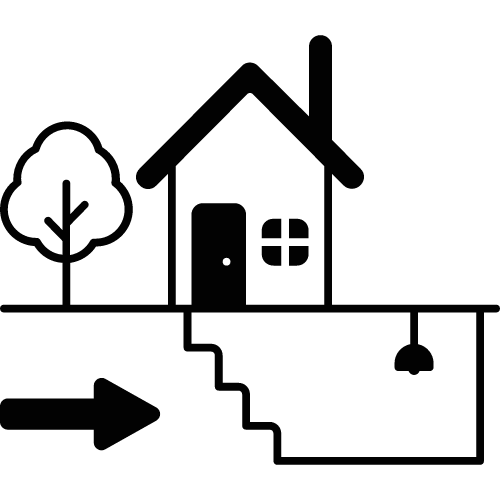Securing Your Crawlspace, Ensuring Home Health
Your crawlspace might be out of sight, but it shouldn’t be out of mind. Just like a basement, it plays a pivotal role in the health of your home's foundation. A well-maintained crawlspace not only supports the structural integrity of your home but also safeguards against potential health hazards. Advanced Basement Technologies in Topeka, KS, is dedicated to offering comprehensive crawlspace solutions tailored to your home's specific needs.
Crawlspace Protection with Advanced Basement Technologies
Ensuring the health of your crawlspace is pivotal for the overall well-being of your home. At Advanced Basement Technologies in Topeka, KS, we recognize the crucial role a crawlspace plays in the structural integrity and indoor health of your dwelling. Our comprehensive approach addresses both external and internal waterproofing needs. From repairing external cracks and managing surrounding terrain moisture to installing internal drain tiles and sump pumps, we're equipped to handle every challenge. Additionally, our dehumidification solutions, including the state-of-the-art Humid-Evac system, actively combat mold growth and wood rot, safeguarding your foundation and enhancing indoor living conditions. Trust in our expertise to provide a dry, secure, and health-optimizing crawlspace environment.

FAQS
Why is it important to waterproof my basement?
Waterproofing your basement is crucial for several reasons. Firstly, it prevents structural damage caused by water seepage, which can weaken your home's foundation over time. Secondly, a damp basement can lead to mold growth, which poses health risks to the occupants. Additionally, waterproofing enhances the value of your home, ensuring a safer, more durable living space.
How can I tell if my foundation needs repair?
Several signs indicate foundation issues. These include visible cracks in the walls or floors, doors and windows that stick or don't close properly, uneven or sagging floors, gaps between the wall and ceiling or floor, and a tilting chimney. If you notice any of these signs, it's essential to consult a foundation specialist promptly to assess the situation and recommend appropriate solutions.
Are mold problems limited only to old homes?
No, mold problems can arise in both old and new homes. Mold growth is primarily due to moisture presence, which can be caused by factors like poor ventilation, water leaks, or flooding. Whether your home is newly built or has stood for decades, it's essential to regularly check for mold signs and address any moisture problems immediately.
What is the purpose of a sump pump, and do I really need one?
A sump pump is a device installed in the lowest part of your basement or crawlspace to help keep the area dry and prevent flooding. It works by collecting excess water and pumping it away from your home. If your basement is prone to flooding or if you live in an area with a high water table, a sump pump is highly recommended to prevent water damage and protect your property's structural integrity.

